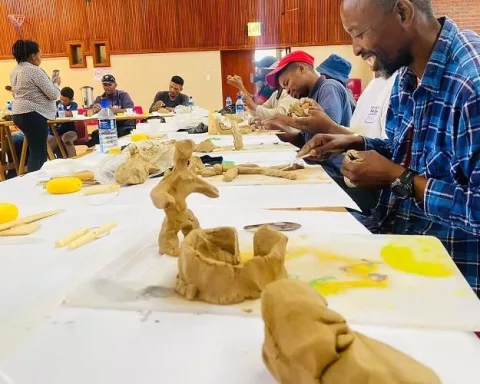South Africa’s government has passed two important laws – the National Council on Gender-Based Violence and Femicide Bill and the National Prosecuting Authority Amendment Bill – to combat corruption and gender-based violence. The National Council on GBVF will coordinate efforts to tackle the crisis, while the NPA Amendment Bill grants permanent status to the Investigating Directorate against Corruption to improve the fight against corruption. These legislative advancements represent the government’s commitment to creating a more equitable society, and it is a shared responsibility of all stakeholders to back these efforts.
South Africa’s government has enacted two seminal legislations – the National Council on Gender-Based Violence and Femicide (GBVF) Bill and the National Prosecuting Authority (NPA) Amendment Bill – to cultivate a more balanced society. The administration is determined to invigorate law enforcement agencies and the National Prosecuting Authority to combat corruption, while also resolving to fight gender-based violence and femicide. The establishment of the National Council on GBVF through the new act is a significant move in this direction.
A Stride Towards an Equitable Society
Under the aegis of President Cyril Ramaphosa, the South African government has made remarkable progress in fulfilling its pledge to cultivate a more balanced society. This pledge has manifested into two seminal legislations – the National Council on Gender-Based Violence and Femicide (GBVF) Bill and the National Prosecuting Authority (NPA) Amendment Bill.
An essential aspect of the administration’s endeavours is the determination to invigorate law enforcement agencies and the National Prosecuting Authority. The motive behind this is not only to rein in corruption, a crippling disease that has long marred the country, but also to bolster the morale of the people. Corruption, as rightly observed by the president, is a monetary liability and a factor that diminishes the spirit of the people, fostering a sense of skepticism and despair.
Reinforcing Institutions to Combat Corruption
The NPA Amendment Bill, recently formulated, speaks volumes about the government’s determination to confront corruption. The legislation grants a permanent status to the Investigating Directorate against Corruption within the NPA. Over the past five years, this directorate has proven its proficiency by successfully prosecuting numerous state capture and corruption cases, convicting nearly 700 government functionaries, and reclaiming significant amounts in misappropriated assets. With the directorate now gaining permanent status, a consistent, long-term fight against corruption can be maintained, crucially cultivating a culture of answerability and integrity within the public sector.
Tackling Gender-Based Violence and Femicide
Transitioning away from the issue of corruption, the administration has shown a strong resolve to fight another damaging menace – gender-based violence and femicide. The establishment of the National Council on GBVF through the new act is a significant move in this direction. The Council is perceived as a cross-sectoral entity, pooling in expertise from all relevant parties, including civil society, labour, and businesses. This Council will lead the strategic battle against GBVF, coordinating efforts, and directing resources to effectively counter this prevalent crisis.
The strategic plan on GBVF, jointly crafted with civil society, stresses on preventive actions and simultaneously strengthens the criminal justice system’s response. The initiation of new Thuthuzela Care Centres, Sexual Offences Courts, and victim-friendly rooms at police stations across the country indicates a more victim-focused approach. Moreover, the financial empowerment of women, enabled through programs like the Women’s Economic Assembly, serves as a potent discouragement against gender-based violence by nurturing economic self-sufficiency.
A United Front Against Violence
Nevertheless, the government acknowledges that the issue of gender-based violence cannot be addressed in a vacuum. It necessitates a comprehensive, concentrated, and adequately resourced national movement involving all parties. The National Council on GBVF intends to provide this much-needed coordination, reinforcing the national commitment to eliminate violence against women and children.
As South Africa marks 30 years of democracy, it stands at a critical crossroads. The enactment of these two laws signifies the government’s steadfast commitment to creating an ethical, competent state with sturdy institutions. Corruption and gender-based violence, besides being gross violations of human rights, are obstacles to the nation’s progress. These criminal activities prevent us from realizing our full potential and advancing towards a genuinely free and equal society.
A Transformative Approach
The actions taken by the government under President Ramaphosa are not just legislative revisions but transformative steps. They aim to remodel the public dialogue, stimulate public involvement, and advocate transparency and accountability. It is a shared responsibility of all stakeholders, including those in government, business, labour, and civil society, to back these efforts and contribute to making these entities successful.
In conclusion, these legislative advancements represent a ray of hope in the battle against corruption and gender-based violence. They symbolise the government’s devotion to creating an inclusive, accountable, and equitable society. It is a testament to the efficacy of strategic collaboration and the unwavering commitment to enhance the lives of every South African. These measures, which resonate deeply with the principles of a democratic society, herald a new beginning for South Africa.
What are the two laws passed by the South African government to combat corruption and gender-based violence?
The South African government has passed two important laws to combat corruption and gender-based violence: the National Council on Gender-Based Violence and Femicide Bill and the National Prosecuting Authority Amendment Bill.
What is the purpose of the National Council on Gender-Based Violence and Femicide Bill?
The National Council on Gender-Based Violence and Femicide Bill aims to coordinate efforts to tackle gender-based violence and femicide crisis in South Africa. The Council is perceived as a cross-sectoral entity, pooling in expertise from all relevant parties, including civil society, labour, and businesses.
What is the National Prosecuting Authority Amendment Bill?
The National Prosecuting Authority Amendment Bill grants permanent status to the Investigating Directorate against Corruption within the NPA to improve the fight against corruption. The legislation is aimed at invigorating law enforcement agencies and the National Prosecuting Authority to combat corruption.
How does the government plan to combat gender-based violence and femicide?
The government’s strategic plan on gender-based violence and femicide involves preventive actions and strengthening the criminal justice system’s response. The government is initiating new Thuthuzela Care Centres, Sexual Offences Courts, and victim-friendly rooms at police stations across the country. The financial empowerment of women through programs like the Women’s Economic Assembly serves as a potent discouragement against gender-based violence by nurturing economic self-sufficiency.
What is the National Council on GBVF’s role in addressing gender-based violence and femicide?
The National Council on GBVF intends to provide much-needed coordination, reinforcing the national commitment to eliminate violence against women and children. The Council will lead the strategic battle against GBVF, coordinating efforts, and directing resources to effectively counter this prevalent crisis.
What is the government’s overall goal in enacting these two important laws?
The government’s overall goal in enacting these two important laws is to create a more equitable society by invigorating law enforcement agencies and the National Prosecuting Authority to combat corruption. The government is also determined to fight gender-based violence and femicide and create a culture of answerability and integrity within the public sector.












